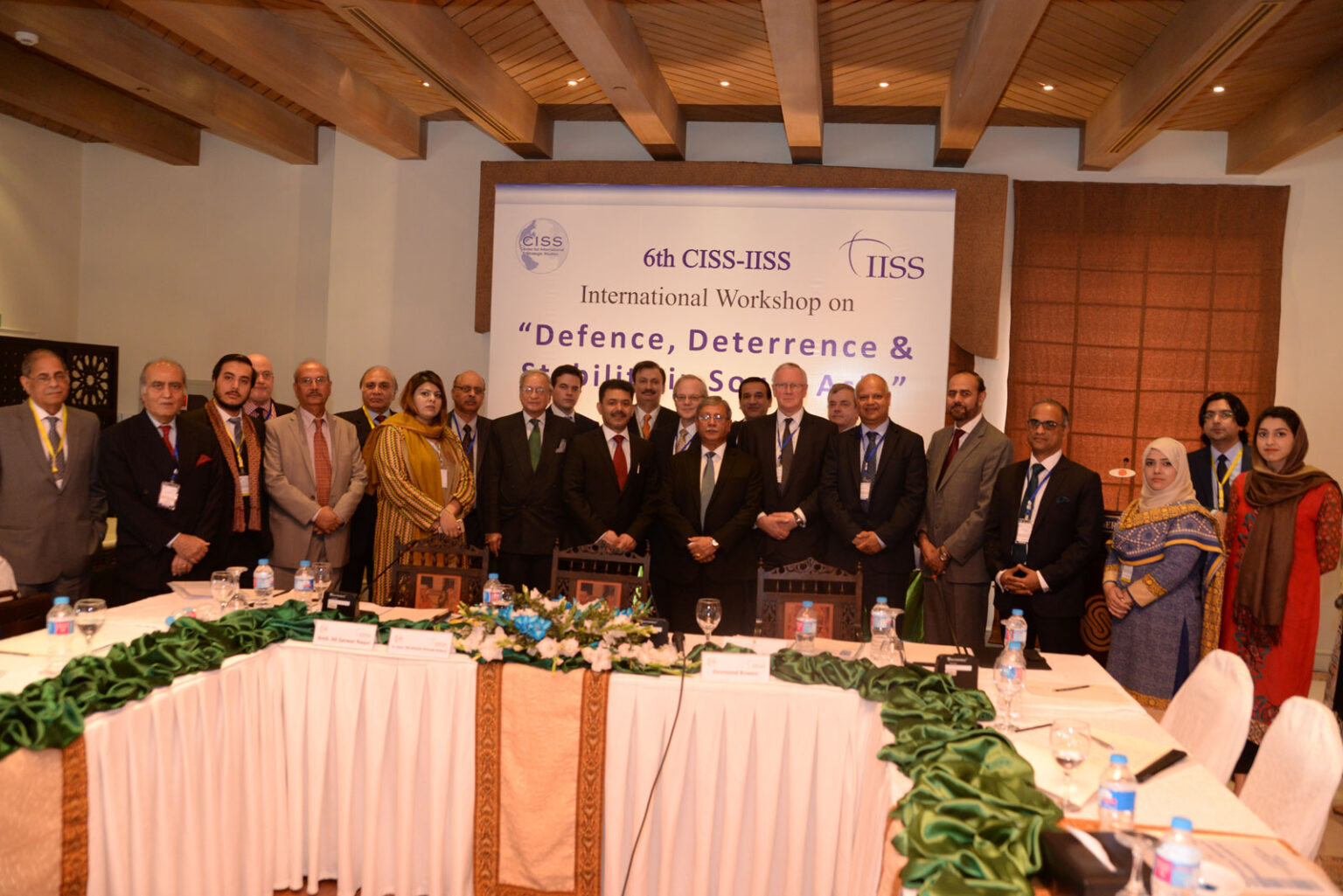India has shifted the conflict to sub-conventional level by resorting to use of terrorism and proxies against Pakistan after realizing that conventional war was inconceivable due to its nuclear capabilities.
This was stated by Adviser National Command Authority (NCA) Khalid Kidwai while speaking at the 6th workshop on ‘Defence, Deterrence and Stability in South Asia’, jointly organised by Islamabad based Centre for International Strategic Studies (CISS) and International Institute for Strategic Studies (IISS) London.
Panelists in the workshop, which was attended by diplomats, academics and analysts of strategic issues, deliberated on regional issues including Pakistan’s relations with US and India, security in Indian and Pacific Ocean Regions, and shifts and trends in nuclear doctrine and deterrence. “Because of mutually assured destruction, there is unlikelihood of a hot war or a conventional war and therefore the conflict has shifted towards sub-conventional level. As of now, that can be seen in full play at our Western borders,†Kidwai said recalling the public pronouncements by Indian leadership of using terrorism to destabilize Pakistan. “An announced sub-conventional direction has been taken by India,†he underscored, adding that the region was now entering “cold war era for regional supremacy … creation of proxies.â€
Kidwai credited the reduction in chances of conventional war to Pakistan’s “robust nuclear capability†and the policy of ‘Full Spectrum Deterrence.’ “The era of conventional hot wars is behind us. India can generate as much heat as it likes on Line of Control including phantom surgical strikes from time to time, which in any case would be strongly retaliated by Pakistan and that’s about it,†he said. He also explained the salient features of Full Spectrum Deterrence policy, which envisages possession of a full range of nuclear weapons that could reach every part of the Indian territory; having enough yield and numbers to deter rival from its policy of massive retaliation; and having liberty of picking targets including counter-value, counter-force and battlefield.
Speaking about Pakistan’s nuclear capabilities, Kidwai said that the country is self-reliant in nuclear field, but its programme is not the fastest growing in the world. “There are no aggressive overtones to our capability; the over-arching policy is Full Spectrum Deterrence, but within the larger philosophy of Credible Minimum Deterrence. Pakistan will maintain peace and security in South Asia with adequate level of armaments at all tiers: strategic, operational and tactical,†he maintained.
The NCA adviser renewed the call for resolution of disputes in the region saying unless that is done, the region would remain in flux alternating between “strategic stability and instability.†Fragile peace in the meantime, he believed, would be maintained through defense and deterrence postures. Emphasizing that Pakistan made the right choices while tackling the threats to its security, he said, “Pakistan will find itself on the right side of the history; the coming decades are likely to validate this.â€
Team Leader IISS Desmond Bowen spoke about the difference in understanding of deterrence in West and South Asia. He also underlined the risks associated with the nuclear capability. “Security of Pakistan is a sovereign responsibility and so is the calculation of risk in these matters. How manageable are those risks now, but above all in times of crises,†he said. Bowen questioned the existence of political will in South Asia for stability.
Executive Director of CISS Sarwar Naqvi gave an overview of regional trends. He observed that Pakistan was deeply skeptical of President Trump’s South Asia policy. Meanwhile, in relations with India, he noted, the stalemate was persisting.
Naqvi expressed his concerns about nuclear politics rhetoric and the introduction of technologically advanced and sophisticated nuclear weapons. He said, these developments and India’s inclusion in MTCR could disturb the strategic balance in the region and trigger an arms competition in the Indian Ocean region.
Photo Gallery
Press Coverage
Ali Sarwar Naqvi is Executive Director at the Center for International Strategic Studies (CISS), Islamabad.


